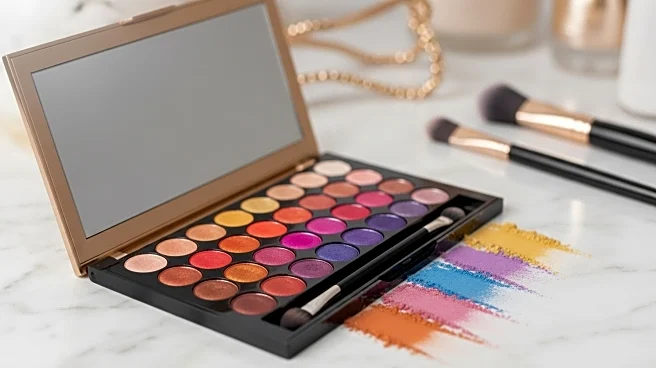What is the story about?
What's Happening?
At the 2025 WWD LA Beauty Forum, Jacqueline Flam Stokes, managing director of beauty and health at NielsenIQ, highlighted significant changes in beauty shopper behaviors. Online sales have surpassed 50% of the beauty market, growing 18.7% year-over-year through August, while in-store sales remained flat. Amazon has seen double-digit growth, with beauty sales increasing by 22% over the past year. The line between prestige and mass retail is blurring, with 99% of prestige beauty shoppers also purchasing from mass retailers. Social commerce platforms like TikTok Shop are driving impulse purchases, with 68% of transactions being impulse-driven. Affluent shoppers are investing in salon-quality at-home hair products, and men are increasing their beauty product purchases.
Why It's Important?
These shifts in consumer behavior are reshaping the beauty industry, impacting how brands and retailers strategize their sales and marketing efforts. The growth in online sales and social commerce indicates a need for businesses to enhance their digital presence and adapt to changing consumer preferences. The blurring lines between prestige and mass retail suggest that brands must reconsider their positioning and pricing strategies. The increased spending by affluent shoppers and men presents new opportunities for targeted marketing and product development. Overall, these trends highlight the importance of data-driven strategies to anticipate and respond to evolving consumer demands.
What's Next?
Brands and retailers are advised to differentiate, personalize, and diversify their strategies to keep pace with these changes. Embracing data and anticipating shopper changes will be crucial for maintaining competitiveness in the dynamic beauty market. Companies may focus on enhancing their digital platforms, expanding product offerings, and leveraging social commerce to capture impulse purchases. As consumer preferences continue to evolve, businesses must remain agile and responsive to maintain their market share.
Beyond the Headlines
The ongoing shifts in beauty shopper behaviors may have broader implications for the retail industry, influencing trends in other consumer goods sectors. The emphasis on digital and social commerce could drive innovation in e-commerce technologies and platforms. Additionally, the changing dynamics between prestige and mass retail may lead to new collaborations and partnerships within the industry. These developments could also impact supply chain strategies, as businesses adapt to meet the demands of increasingly diverse consumer preferences.















